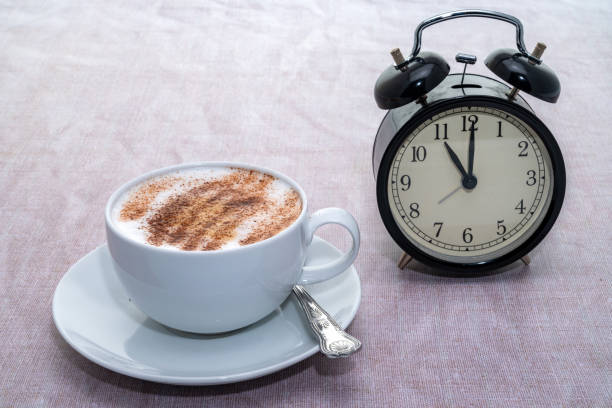Coffee lovers often reach for their favorite brew to kickstart their day or to fuel their afternoon productivity slump. But what happens when you switch to decaf? Can decaf coffee still give you that much-needed pick-me-up, or are you just enjoying the rich flavors without the buzz? For those who love the taste of coffee but want to steer clear of caffeine jitters, this is an important question. In this blog post, we’ll explore the effects of decaf coffee, its benefits, and whether it can help you stay alert and awake. We’ll also address common queries about decaf and its impact on energy levels.
Understanding Decaf Coffee
Decaf Defined
Decaf coffee, short for decaffeinated coffee, undergoes a process to remove most of the caffeine content. But what does this mean for your cup of joe? Typically, a standard cup of coffee contains about 95 milligrams of caffeine, while decaf coffee contains only 2 to 5 milligrams. This significant reduction allows those who are sensitive to caffeine or wish to limit their intake to enjoy coffee without the full stimulant effect.
How Is Decaf Made?
The decaffeination process involves removing caffeine from coffee beans while maintaining the flavor profile as much as possible. There are several methods to achieve this, including the Swiss Water Process and the use of solvents like methylene chloride or ethyl acetate. Each method has its pros and cons, but they all aim to produce coffee that tastes just like regular coffee—minus most of the caffeine.
Why Choose Decaf?
Many people choose decaf for health reasons or because they enjoy drinking coffee later in the day without disrupting their sleep. Others might be sensitive to caffeine’s effects, such as increased heart rate or anxiety. By opting for decaf, they can savor the taste and aroma of coffee without unwanted side effects.
What Happens When You Drink Decaf?
The Non-Caffeine Benefits
Even without the caffeine, decaf coffee offers a range of potential health benefits. It contains antioxidants, which help fight free radicals in the body, reducing oxidative stress and potential damage to cells. Decaf is also rich in essential nutrients like magnesium and potassium, which support various bodily functions.
Flavor Without the Jitters
For many coffee enthusiasts, the flavor profile is just as important as the energizing effects. Decaf coffee retains the rich, complex flavors of regular coffee, allowing you to enjoy your favorite brews without the jitters often associated with caffeine. Whether you love a bold espresso or a smooth latte, decaf can deliver the taste you crave.
Can It Keep You Awake?
The big question remains—can decaf coffee help you stay awake? While it won’t provide the same energy boost as regular coffee, it may still offer some alertness benefits due to the small amount of caffeine it contains. However, for significant energy enhancement, regular coffee or other caffeine sources are more effective.
The Science Behind Caffeine and Wakefulness
How Caffeine Affects the Brain
Caffeine is a natural stimulant that affects the central nervous system, helping to increase alertness and reduce fatigue. It works by blocking adenosine receptors in the brain, which prevents the onset of drowsiness and promotes wakefulness. This is why many people rely on caffeinated coffee to jumpstart their day.
Can Trace Caffeine Make a Difference?
While decaf coffee contains only trace amounts of caffeine, these small quantities can still have a mild impact on some people. Individuals who are particularly sensitive to caffeine might experience a slight increase in alertness after drinking decaf. However, for most, the effect is negligible compared to regular coffee.
Placebo Effect in Coffee Drinkers
Interestingly, the ritual of drinking coffee alone can have a psychological effect. The warmth, aroma, and flavor of decaf coffee can create a placebo effect, making you feel more awake and energized simply because you associate these sensations with your usual caffeine boost. This is a testament to the power of routine and habit in our daily lives.
Health Benefits of Decaf Coffee
Rich in Antioxidants
Decaf coffee is not just a caffeine-free option; it also packs a punch when it comes to antioxidants. These compounds help protect the body from oxidative stress and inflammation, which are linked to various chronic conditions. Drinking decaf may contribute to your daily intake of these beneficial substances.
Supports Heart Health
Studies suggest that coffee, including decaf, may have positive effects on heart health. Regular consumption is associated with a reduced risk of heart disease, as coffee can improve blood vessel function and reduce inflammation. However, moderation is key, as too much coffee can have adverse effects.
May Lower the Risk of Diabetes
Research indicates that both regular and decaf coffee might lower the risk of developing type 2 diabetes. The presence of antioxidants and other bioactive compounds in coffee can improve insulin sensitivity and reduce inflammation, which are crucial factors in managing blood sugar levels.
Decaf Coffee and Sleep
A Friendlier Evening Brew
One of the main reasons people switch to decaf is to enjoy coffee in the evenings without affecting their sleep. Since decaf contains minimal caffeine, it’s less likely to interfere with your ability to fall asleep or stay asleep. This makes it a great choice for those who love an after-dinner cup of coffee.
Sleep Quality and Coffee Habits
While regular coffee can disrupt sleep patterns if consumed too late in the day, decaf offers a way to maintain your coffee routine without the sleep-related side effects. However, it’s important to note that individual tolerance varies, and some people might still find decaf stimulating if consumed in large amounts.
Managing Coffee Consumption
For those who find that even decaf affects their sleep, managing coffee consumption throughout the day is crucial. This might mean limiting coffee intake to the morning or early afternoon to ensure it doesn’t impact your nighttime rest. Finding the right balance is key to enjoying coffee while still getting quality sleep.
Debunking Myths About Decaf
Myth 1: Decaf Is Completely Caffeine-Free
It’s a common misconception that decaf coffee is entirely free of caffeine. In reality, it contains small amounts, typically 2 to 5 milligrams per cup. While this is significantly less than regular coffee, it’s not entirely caffeine-free, which is an important distinction for those who are extremely sensitive to caffeine.
Myth 2: Decaf Is Bad for You
Some people believe that decaf coffee is harmful due to the chemicals used in the decaffeination process. However, modern methods are safe, and the resulting coffee is considered healthy. It’s important to choose decaf from reputable sources that use safe and tested decaffeination techniques.
Myth 3: Decaf Tastes Different
Another myth is that decaf coffee tastes inferior to regular coffee. While there might be subtle differences due to the decaffeination process, high-quality decaf preserves the rich flavors and aromas of traditional coffee. The key is selecting decaf brands that prioritize quality and flavor.
Is Decaf Right for You?
Assessing Your Caffeine Sensitivity
If you’re considering switching to decaf, it’s crucial to assess your sensitivity to caffeine. If you experience adverse effects like anxiety, insomnia, or palpitations, decaf might be a better option for you. It’s a way to enjoy coffee without the risk of overstimulation.
Lifestyle Considerations
Your lifestyle and daily routine play a significant role in deciding whether decaf is right for you. If you enjoy coffee primarily for its flavor and social aspects, transitioning to decaf could be an excellent choice. However, if you rely on caffeine for energy, you might want to consider a mix of both regular and decaf options.
Making the Switch
If you’re ready to make the switch, start by gradually introducing decaf into your routine. Slowly replace some of your regular coffee with decaf to allow your body to adapt. This approach can help you adjust to lower caffeine levels without experiencing withdrawal symptoms.
How to Brew the Perfect Cup of Decaf
Choosing Quality Beans
To enjoy the best decaf coffee, start with high-quality beans. Look for brands that use reputable decaffeination methods and prioritize flavor. Single-origin decaf beans can offer unique flavor profiles, making your coffee experience even more enjoyable.
Experimenting with Brewing Methods
Decaf coffee can be brewed using various methods, just like regular coffee. Whether you prefer a French press, pour-over, or espresso machine, experimenting with different techniques can help you find the perfect cup. Adjust grind size, water temperature, and brewing time to suit your taste preferences.
Adding Flavor Enhancements
Enhance your decaf coffee experience by adding your favorite flavorings. A dash of cinnamon, a splash of vanilla extract, or a dollop of whipped cream can elevate your cup. These additions can make your decaf feel indulgent and satisfying, without the caffeine.
Frequently Asked Questions About Decaf Coffee
Does Decaf Coffee Have Health Benefits?
Yes, decaf coffee contains antioxidants and nutrients that support overall health. It may offer benefits like reduced inflammation, improved heart health, and a lower risk of diabetes.
Can Decaf Coffee Keep You Awake?
Decaf contains only a small amount of caffeine, so it may not significantly impact your alertness. However, the ritual of drinking coffee can create a placebo effect, making you feel more awake.
Is Decaf Coffee Safe to Drink Daily?
Yes, decaf coffee is safe for daily consumption, especially if you’re sensitive to caffeine. It’s a great way to enjoy the taste of coffee without overstimulation.
Wrapping Up Your Decaf Experience
Decaf coffee offers a flavorful alternative for those who want to enjoy coffee without the full effects of caffeine. While it may not provide the same energy boost as regular coffee, it still has a lot to offer. From potential health benefits to delicious flavor, decaf can be a valuable addition to your daily routine. Whether you’re considering cutting back on caffeine or simply exploring new coffee options, decaf might be worth a try. To explore more about decaf and other coffee trends, consider checking out related articles and resources that can deepen your understanding and enhance your coffee experience.





